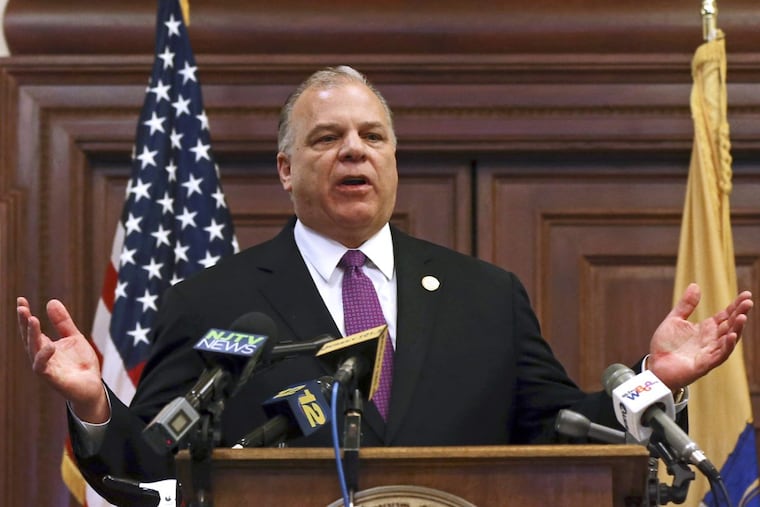N.J. needs better control of the political money bullies | Editorial
The 2010 Supreme Court Citizens United decision took the caps off the money. But recognizing the corrupting influence of money in politics, the court called for disclosure. State and federal legislators, however, have been reluctant to call for disclosure because they're afraid of alienating their sugar daddies - proof that the special interests are in charge.

New Jersey Senate President Stephen Sweeney (D., Gloucester) should fully understand the vicious power of big moneym because he spent the last year as a punching bag for the teachers' union.
Teachers were so enraged that he reneged on a promise to constitutionally mandate state funding of their pension that they spent an estimated $4.7 million on a series of slasher television and print ads in a failed attempt to unseat him in the 2017 election. Sweeney's forces responded in kind, using a political group to debase his Republican opponent, Fran Grenier. Both sides benefited from a giant loophole in state law that let them use independent expenditure organizations that take unlimited funds from special interests and dump them into political operations with impunity. Adding together the money from these groups, as well as party and candidate committees, the Sweeney race came to $18.7 million, breaking previous records in the country for spending in a state legislative race.
The most searing ad funded by the teachers' group, Garden State Forward, called him a double-dipping, pension-padding scoundrel. In just 30 seconds, it accused him of using campaign funds to buy lavish dinners and fine cigars. It noted that he voted 145 times to raise taxes. The walk-off line was a killer: "It's time to take out the trash. On Nov. 7, make a change. Dump Sweeney."
It will remain unclear just how much the teachers and the Sweeney support group, New Jerseyans for a Better Tomorrow, spent on the race because independent expenditure groups are virtually unregulated in New Jersey — even though they should be.
Despite the lack of regulation, independent expenditure groups at least are required to occasionally disclose their donors; something that "dark money" groups, organized as nonprofits under Section 501 of the IRS code, don't.
With unchecked growth, independent expenditure groups are now far more powerful than political parties in New Jersey. Consider that in 1993, independent groups spent $500,000 and political parties and their candidates spent $46 million. In 2017, the Democrats and Republicans spent $12 million and the independent groups spent $46 million.
The difference is that donations to political parties are capped and must be disclosed to dilute the power of special interests. Those special interests now dump their unlimited dollars into independent expenditure groups and expect unlimited influence in return. The losers are the voters, because the special interests spend so much on advertising that they drown out thoughtful debate.
The Supreme Court's 2010 Citizens United decision took the caps off the money. But recognizing the corrupting influence of money, the court called for disclosure. State and federal legislators, however, have been reluctant to press disclosure because they're afraid of alienating their sugar daddies — proof that the special interests are in charge.
As senate president, Sweeney has the power to stop this, because he decides whether legislation lives or dies. Legislators from both parties have bills pending. Sweeney should move them.
If Sweeney isn't worried about cleaning up campaign rules because voters should know who is manipulating them, he should be worried about his own hide. He escaped this time, but he and his pals are wide open to attack from the next angry special-interest group.